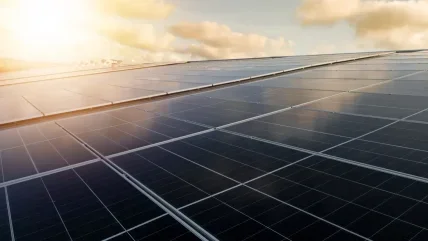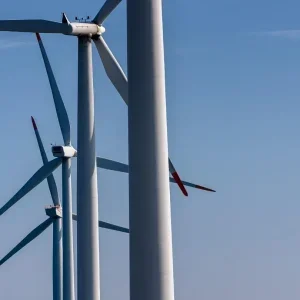
ReNew has launched a solar power project with a capacity of 1.3 gigawatt peak (GWp) in Jaisalmer, a city in the India state of Rajasthan.
The project was officially launched by the India’s Minister of New and Renewable Energy Pralhad Joshi. Rajasthan Chief Minister Bhajan Lal Sharma was also present at the inauguration.
Overall, the solar project covers approximately 3,500 acres across several villages, including Rampuriya, Bhinajpura, Hastinapur, and Masuriya in the Jaisalmer district.
It uses solar panels that are produced by ReNew, with 90% of them manufactured at the company’s facility in Jaipur, Rajasthan. The electricity from this project will be delivered to Rajasthan residents at a competitive rate of INR2.18 per kilowatt-hour (kWh), the company said.
It is projected to generate around 2,490 million units of electricity annually, meeting the energy needs of about 500,000 households in the region. Additionally, the project is expected to offset approximately 2.3 million tonnes of CO2 emissions each year, contributing to environmental sustainability efforts.
Furthermore, the project provides economic benefits to the local community. Landowners around the project site will receive fixed income for 25 years through land lease agreements for their unused land.
ReNew founder, chairman and CEO Sumant Sinha said: “It’s truly a moment of pride for us at ReNew. The state of Rajasthan has always been central to our growth story, with approximately 5GW of our total operational capacity located here, backed by investments exceeding Rs 21,000 crore [INR210bn].
“Additionally, we also have a 4 GW solar module manufacturing facility in Jaipur, underscoring our long-term commitment to the Hon’ble Prime Minister’s vision of Atmanirbhar Bharat”.
ReNew is an India-based renewable energy company with a global clean energy portfolio of 17.4GW, as of December 2024. Alongside its role as a major independent power producer in India, ReNew offers comprehensive solutions in clean energy, digitalisation, storage, and carbon markets.
In December 2024, the company received a non-binding proposal to be taken private by a consortium of companies. The proposal valued the company at $2.82bn.






